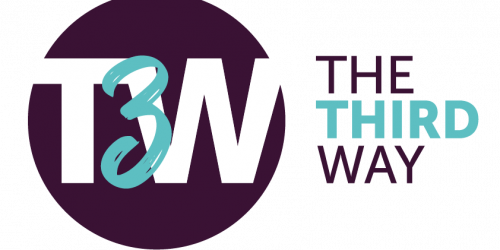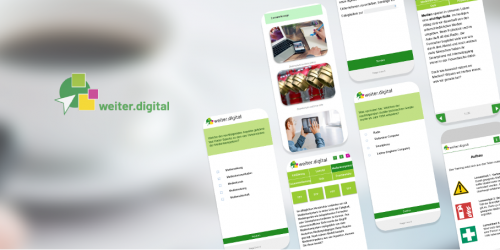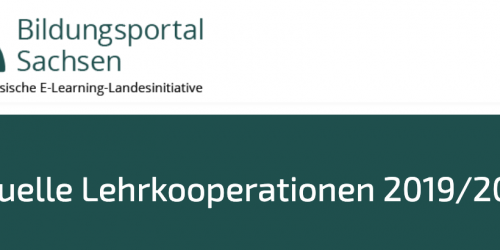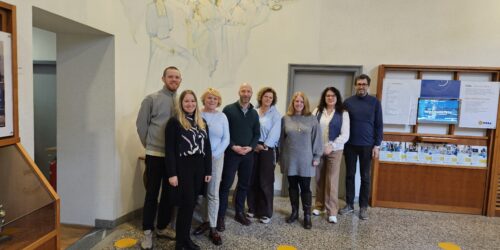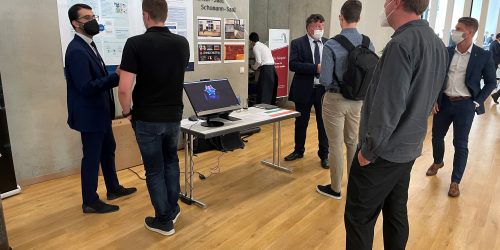18th PhD Summer School “Education & Technology” 2025 in Albania
From 30 June to 4 July 2025, the 18th PhD Summer School “Education & Technology (E&T)” was successfully held at the EPOKA University in Tirana, Albania. Under the theme “Sustainable higher education: Virtual collaboration, AI and digital transformation“ the event was jointly organized by the Center for Open Digital Innovation and Participation (CODIP) of the TU Dresden and the Center for Lifelong Learning of the EPOKA University – in cooperation with an international university consortium.
This inspiring academic event brought together 30 international doctoral students and 20 experienced academic supervisors from Europe, Asia, and South America, providing a unique platform for knowledge exchange, international networking, and interdisciplinary collaboration. Key partner institutions included the DHBW (Germany), the UFRJ (Brazil), the University of Bergen (Norway), the PHDL (Austria), the Universitas Negeri Yogyakarta (Indonesia), the University of Strasbourg (France), and the host EPOKA University (Albania).
The opening ceremony of the 18th E&T PhD Summer School took place in the conference hall of EPOKA University. On behalf of EPOKA University, Rector Prof. Dr. Ahmet Öztas and Dr. Armando Demaj They warmly welcomed all participants. They extended their sincere greetings to the visiting professors and doctoral students who had come to Albania for a week of academic exchange and cooperation..
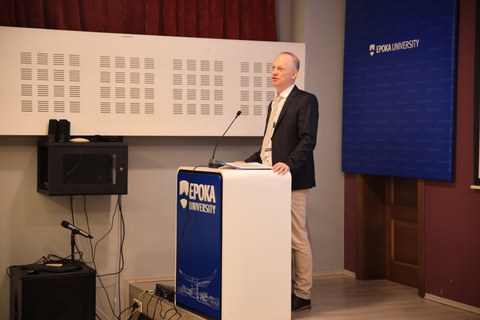
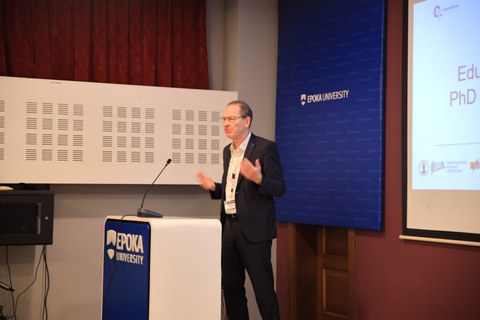
Prof. Dr. Eric Schoop, Senior Advisor at CODIP and leader of the COWEB research project, has maintained a close and productive collaboration with EPOKA University for many years. As one of the key contributors to this event, Prof. Schoop emphasized the strong partnership between the two institutions in the areas of academic exchange and researcher mobility in the past. In particular, this event offered an expanded platform for doctoral students to further develop their intellectual skills, network internationally, and gain valuable academic experience. He expressed the hope that all participants would gain new inspiration for future research projects and further strengthen the effective integration of education and technology.
The one-week program offered a high-caliber academic curriculum addressing the challenges and opportunities of digital transformation in higher education. The focus was on pressing questions regarding the role of artificial intelligence (AI), virtual collaboration, and future competencies in the context of doctoral education.
Highlights of the academic program included keynote speeches by leading scientists:
- Prof. Eric Schoop, Mattis Altmann and Nelli Ukhova about Collaborative Online International Learning
- Prof. Ulf-Daniel Ehlers on Future skills in a world shaped by AI
- Prof. Helge Fischer about Gamified learning strategies within the EU-funded project Game4Change
- Prof. Thomas Schöftner about Attitudes of digital natives in the age of artificial intelligence
- Prof. Thomas Köhler and Prof. Xiaohan Zhang about AI Literacy Frameworks for Vocational Education
- Prof. Petra Traxler about Children and media interaction in a mediatized world
Interactive workshops dealt with qquantitative research methods, inclusion and accessibility, triangulation in educational research, action research and systematic literature reviews, as well as academic integrity and ethical citation.
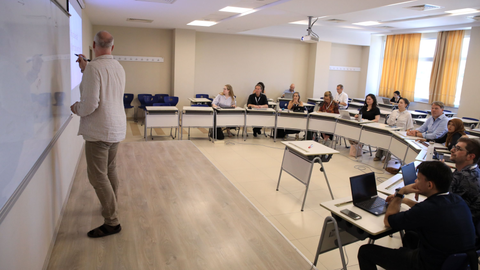
A particular highlight of the program was the focus on “Virtual Collaborative Learning (VCL)” and “Collaborative Online International Learning (COIL),” which emerged as one of the core themes of the 18th PhD Summer School. This topic was addressed in a keynote speech entitled “Collaborative Online International Learning,” delivered by Prof. Dr. Eric Schoop from the TU Dresden in cooperation with the two doctoral students Mattis Altmann and Nelli UkhovaThe meeting was a central component of the research project COWEB and provided participants with valuable insights and conceptual frameworks to better understand and apply VCL and COIL approaches in higher education.
A central element of the summer school was the PhD poster exhibition, which spanned three days. All 30 doctoral students presented their current research projects on a wide range of topics, including AI in curriculum development, digital equity, technology-enhanced language learning, and digital assessment tools. The organizing team established three award categories for the poster exhibition, which all professors voted on based on the quality of the doctoral students' presentations.
Hongsu Yin from TU Dresden received the "Award for Excellence in Scientific Communication" for her outstanding clarity and engaging presentation during the poster session. David Koslowski, also from TU Dresden, received the "Award for Innovation and Originality in Research" in recognition of his creative and forward-looking research approach. The "Award for Excellence in Visual Scientific Presentation" was jointly awarded to Ajsela Toci from EPOKA University and Hongsu Yin from TU Dresden for their clear and colorful visual design for communicating scientific content.
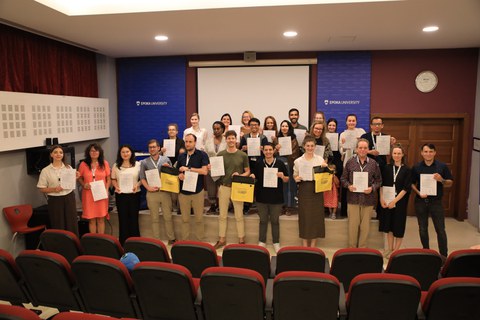
The remaining doctoral students received a certificate of participation in recognition of their contributions and active participation throughout the summer school. This activity provided opportunities for direct feedback, academic discussion, and peer learning.
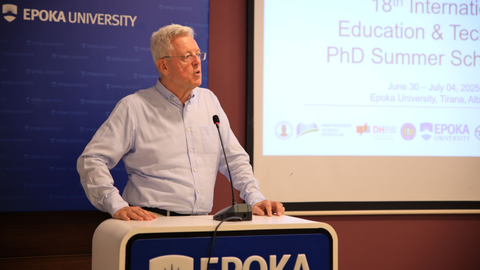
A significant diplomatic moment occurred on June 30, when HE Ambassador Karl Bergner and First Secretary Jan Maibom of the Embassy of the Federal Republic of Germany in Tirana visited the summer school. Ambassador Bergner praised the event as an outstanding example of German-Albanian science diplomacy and emphasized its role in promoting scientific cooperation and innovation in the Western Balkans.
In addition to the formal academic sessions, participants participated in a series of carefully designed intercultural experiences, including a guided campus tour at EPOKA University and a cultural excursion to Kruja, one of Albania's oldest historic cities. These activities strengthened a sense of community, fostered long-term research partnerships, and contributed to a deeper sense of belonging to the global scientific community.
The week concluded with a feedback and evaluation session, the ceremonial presentation of participation certificates, and closing remarks from the organizers, Dr. Armando Demaj and Mattis Altmann. Participants expressed their gratitude for the opportunity to network across cultures, disciplines, and institutions.
“This summer school has not only advanced our academic paths – it has also broadened our understanding of the global challenges facing higher education,” remarked one participant in the concluding remarks.
As digitalization continues to fundamentally transform the higher education sector, the CODIP Research Center reaffirms its commitment to inclusive, international, and digitally supported doctoral education. The successful implementation of the 18th Summer School underscores the value of strategic partnerships and the central role of structured doctoral programs in building sustainable academic ecosystems.
Stay tuned for 2026 – the 19th E&T PhD Summer School could take place at TU Dresden in Germany!

